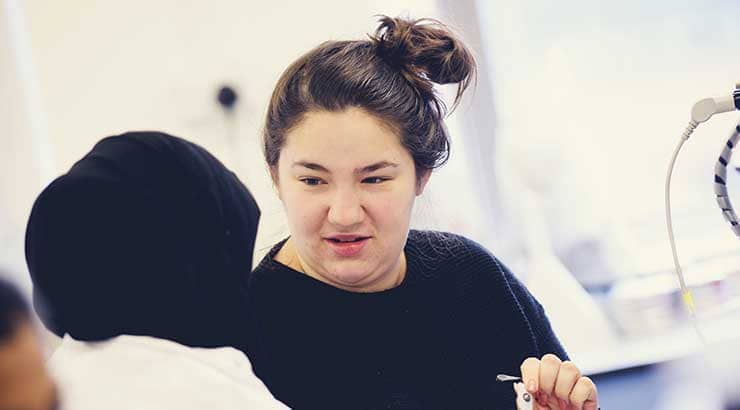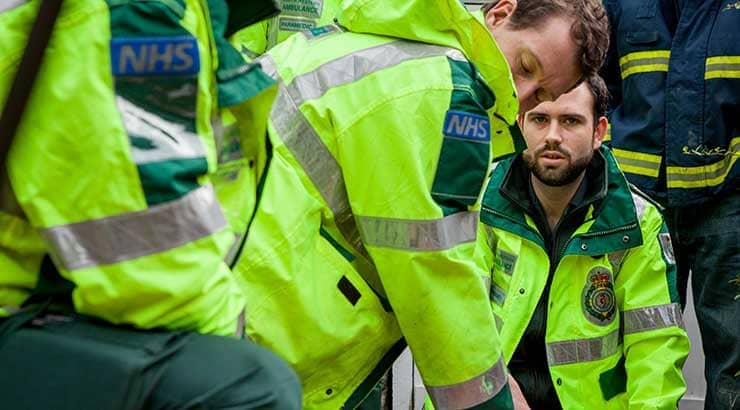Getting treatment on the NHS
Free treatment
The following NHS treatments are free for everyone:
- doctor consultation services
- some emergency treatment (but not follow-up treatment)
- family planning services
- treatment of certain communicable diseases
We strongly recommend that you register with a doctor within the first couple of weeks of arriving at UWE Bristol, even if you do not feel ill. This will make it easier to see a doctor when you need to.
If you need to be referred to hospital by your doctor, you will not need to pay for anything other than prescriptions. There are waiting lists for all non-urgent appointments and procedures, so you may have to wait to be treated until you go home.
Paid treatments
The NHS will generally not fund:
- Treatments for which there is no scientific evidence of benefit
- Cosmetic procedures
- Treatments for mild conditions which will resolve on their own
- Interventions which do more harm than good.
Claim back costs
You may need to pay for some other services, such as:
- NHS prescriptions
- NHS dental treatment
- sight tests, glasses and contact lenses.
Students can be entitled to help towards the cost of these services – you can apply for a certificate to receive free or reduced-cost treatment. All you need to do is complete an HC1 application form from any doctors or dentists surgery. Most UK, EU and international students are eligible.
If you’ve had treatment within the last three months, you can claim the cost back by filling in a HC5 form, which is also available from the same locations.
European Union (EU)/European Economic Area (EEA) students
Basic medical care is free from the NHS from the beginning of your stay if you are an EU/EEA student.
Before you come to the UK, EU/EEA students should contact the health authorities in their own country to complete Form E128 or they should bring their European health insurance card.
International students
International students on a programme of study of six months or more will be subject to an Immigration Health Surcharge as part of their visa application in order to access medical care in the UK on arrival.
If you are studying for less than six months, you are strongly advised to take out personal medical insurance (unless you come from a country or region with a reciprocal health agreement).
If your course of study is for six months or more, your spouse or children with you in the UK will also be entitled to NHS treatment from the beginning of your stay.
To receive free hospital treatment, your family members must be in the UK as your dependants and not, for example, as visitors. “Family” in this case means your husband or wife and your children up to the age of 16 (or up to the age of 19 if they are in full-time education).
Standards of care
The NHS runs a universal healthcare system for free if you need it, which is funded by taxation. There is, therefore, a limit to the resources available and what the NHS has decided is reasonable to pay for.
There are no top-up payment systems generally available to buy additional care. So if you want the exact same services that you receive in your home country, you may have to pay for some of them here. The NHS will, however, provide you with all immediate and necessary care when you need it.
The role of GPs is particularly strong in the UK NHS. It is almost impossible to see a specialist without going through your GP, who will always be your first point of contact for your health needs. They will refer you if they think it is necessary.
Although you can usually get the same tests in the UK as in your home country, these are often guided by NICE (National Institute for Clinical Excellence) or by scientific evidence. Therefore, guidelines and the frequency of the test or the specific tests available may vary considerably.
In the UK, GPs are largely paid by the number of patients registered with them. In some other countries GPs may tend to be rewarded for doing more things for patients, which may not always be a good thing as it can encourage unnecessary investigation and treatment.
UK GPs do get additional payments for providing high-quality care for certain chronic diseases. If your GP does not have a high-referral pattern, any savings made are retained by the local health service to invest in additional services for patients.
Find a dentist or optician
You can use the NHS website search function to find your nearest doctor's surgery, optician, dentist or pharmacy.
You may also be interested in

Book an appointment
How to book appointments with your doctor, including information for the University Health Centre.

Register with a doctor
How to register with a doctor, including information for the University Health Centre.

Urgent medical care
Information on where to get urgent medical care.

Collect a prescription
What you need to do to collect a prescription.
